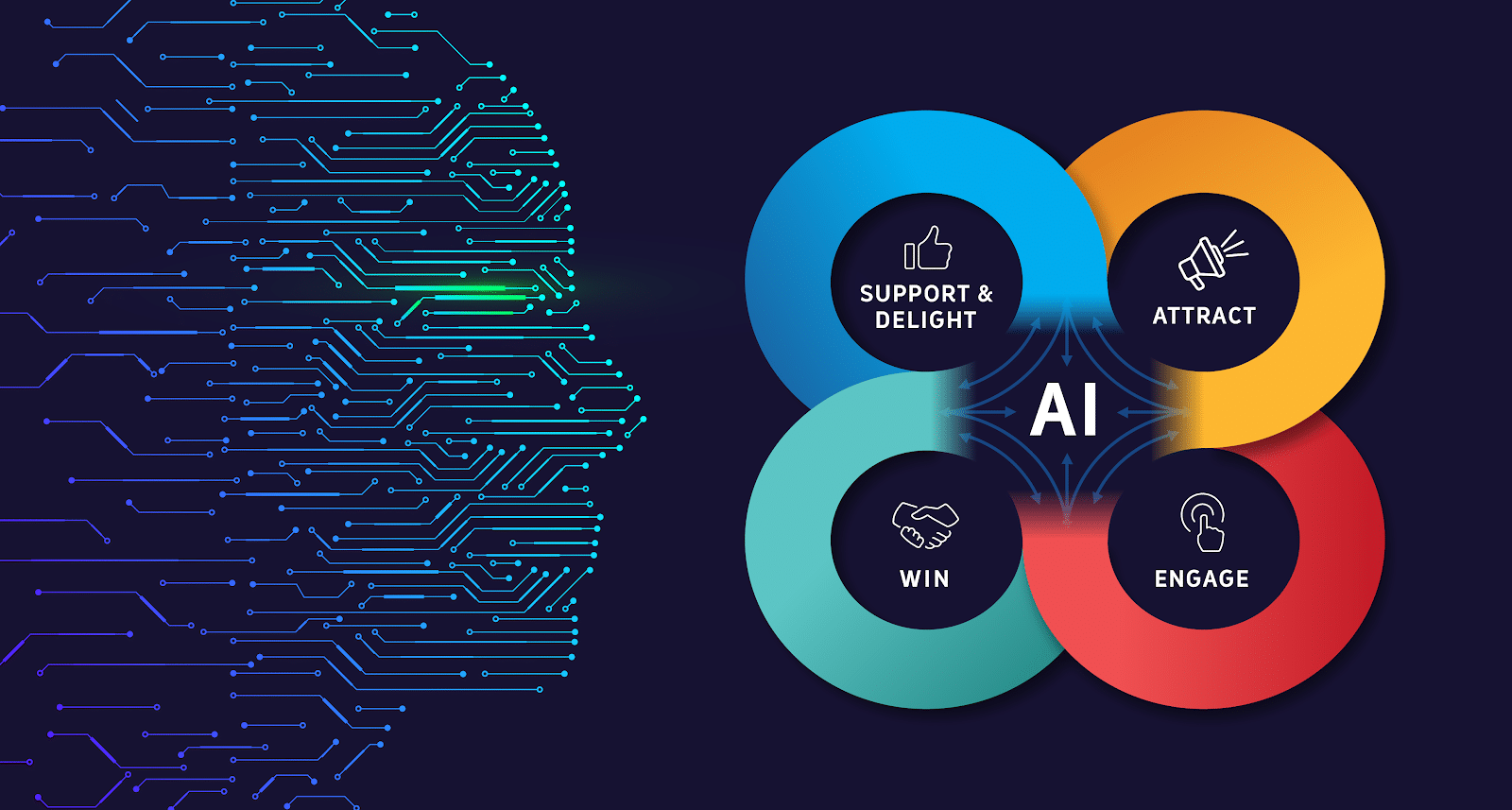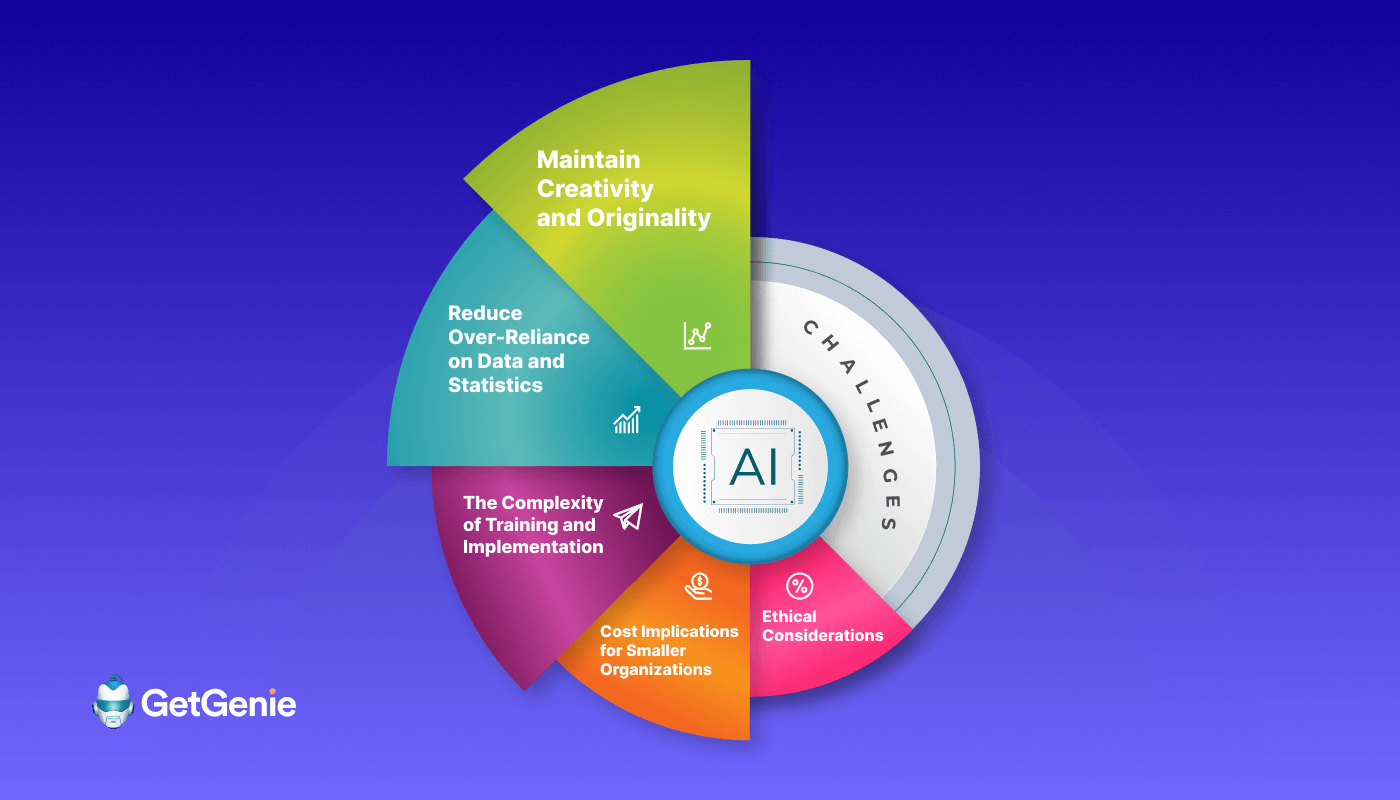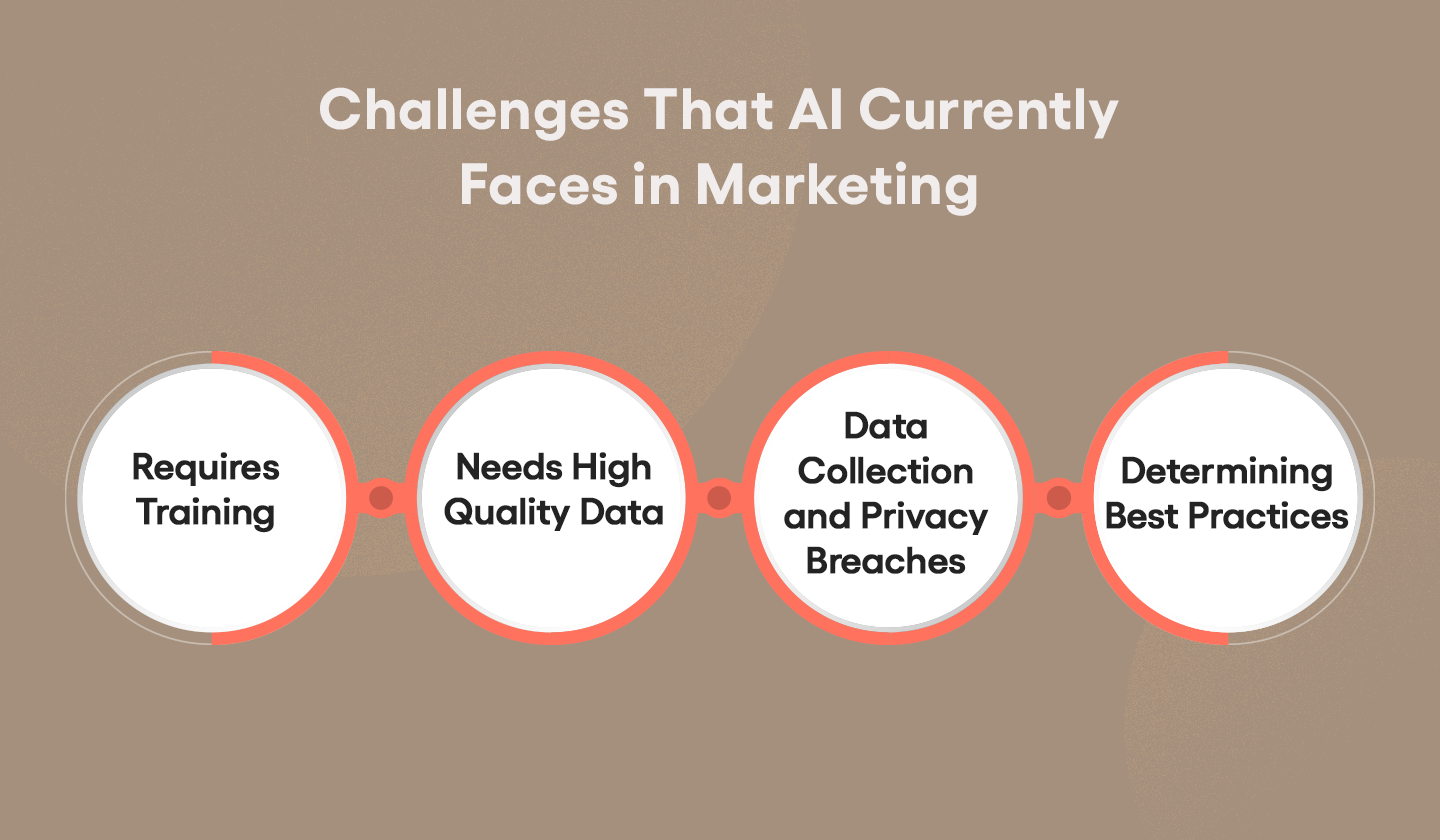Challenges in Implementing AIO in Digital Marketing
Technological and Operational Hurdles
- Data Quality and Quantity: AIO (Artificial Intelligence Optimization) systems require large, high-quality datasets to function effectively. Inaccurate or incomplete data can lead to poor predictions and campaign inefficiencies.
- Integration Complexity: Many organisations use legacy systems not designed for AI integration, leading to costly and time-consuming upgrades. Seamless integration often requires significant IT collaboration and process redesign.
- System Complexity: AIO tools can be highly complex, requiring specialised knowledge to optimise and troubleshoot. This complexity can make it difficult for marketing teams to fully leverage AI capabilities without adequate training.
- Over-reliance on Automation: While automation improves efficiency, over-dependence can result in campaigns that lack human nuance, potentially leading to irrelevant targeting or customer annoyance.
Ethical and Compliance Issues
- Data Privacy: AIO relies on collecting and analysing vast amounts of user data, raising concerns about compliance with regulations like GDPR. Ensuring data is stored, used, and protected responsibly is a persistent challenge.
- Algorithmic Bias: If AI models are trained on biased data, they may produce skewed or unfair marketing insights, potentially alienating segments of the audience.
- Transparency: AI decision-making processes can be opaque, making it difficult to explain outcomes to stakeholders or address customer concerns about how their data is used.
Organisational and Cultural Barriers
- High Implementation Costs: The initial investment in AI technology, ongoing maintenance, data storage, and skilled personnel can be prohibitive, especially for smaller businesses.
- Staff Training and Adaptation: Successful AIO adoption requires comprehensive training and a willingness to adapt workflows. Resistance to change and a lack of AI literacy can hinder implementation.
- Creativity Concerns: Some marketers worry that excessive reliance on AI could stifle creativity, leading to homogenised or less innovative campaigns.
Opportunities in Implementing AIO in Digital Marketing
Enhanced Campaign Performance
- Real-Time Optimization: AIO enables dynamic adjustments in campaigns—such as bid management in Google Ads—based on real-time data, improving ROI and reducing manual oversight.
- Hyper-Personalisation: AI-driven tools can tailor content, offers, and messaging to individual user behaviours and preferences, significantly boosting engagement and conversion rates.
- Predictive Analytics: By analysing historical and real-time data, AIO can forecast trends, customer behaviours, and campaign outcomes, allowing for proactive strategy adjustments.
Efficiency and Scalability
- Automated Content Creation: AI can generate and optimise content at scale, from email copy to social media posts, freeing up human marketers for higher-level strategy.
- Efficient Resource Allocation: AIO helps identify high-performing channels and assets, enabling marketers to allocate budgets and efforts more effectively.
- SEO and Content Strategy: AI-powered tools streamline keyword research, topic clustering, and schema markup, enhancing visibility in search engines and adapting to evolving algorithms like Google’s AI Overviews.
Improved Customer Experience
- Timely and Relevant Communication: AIO optimises the timing and content of communications (e.g., emails, social media), ensuring messages are relevant and less likely to annoy recipients.
- Direct Answers and Engagement: By analysing user intent and behaviour, AIO can deliver concise, relevant answers and content, improving user satisfaction and loyalty.
Competitive Advantage
- Agility: Organisations that successfully integrate AIO can respond more quickly to market changes and consumer trends, staying ahead of competitors.
- Data-Driven Decision Making: AIO provides actionable insights derived from vast datasets, enabling more informed and strategic marketing decisions.
Summary Table: Challenges vs. Opportunities
| Challenges | Opportunities |
|---|---|
| Data quality and integration issues | Real-time campaign optimization |
| High costs and complexity | Hyper-personalised customer experiences |
| Ethical concerns (privacy, bias) | Automated, scalable content creation |
| Staff training and resistance to change | Predictive analytics and trend forecasting |
| Risk of stifling creativity | Improved SEO and content strategy |
| Over-reliance on automation | Enhanced customer engagement and satisfaction |
Conclusion
Implementing AIO in digital marketing presents both significant challenges and transformative opportunities. Success depends on addressing data, integration, and ethical issues while leveraging AI’s capabilities for personalisation, efficiency, and strategic insight. Organisations that navigate these challenges effectively can gain a substantial competitive edge in the rapidly evolving digital landscape.




















WebSeoSG offers the highest quality website traffic services in Singapore. We provide a variety of traffic services for our clients, including website traffic, desktop traffic, mobile traffic, Google traffic, search traffic, eCommerce traffic, YouTube traffic, and TikTok traffic. Our website boasts a 100% customer satisfaction rate, so you can confidently purchase large amounts of SEO traffic online. For just 40 SGD per month, you can immediately increase website traffic, improve SEO performance, and boost sales!
Having trouble choosing a traffic package? Contact us, and our staff will assist you.
Free consultation